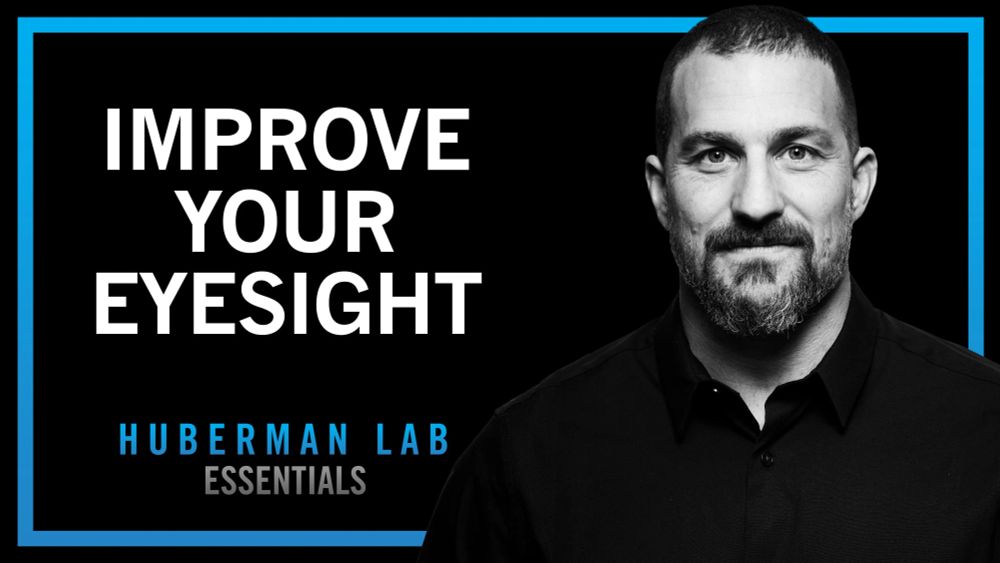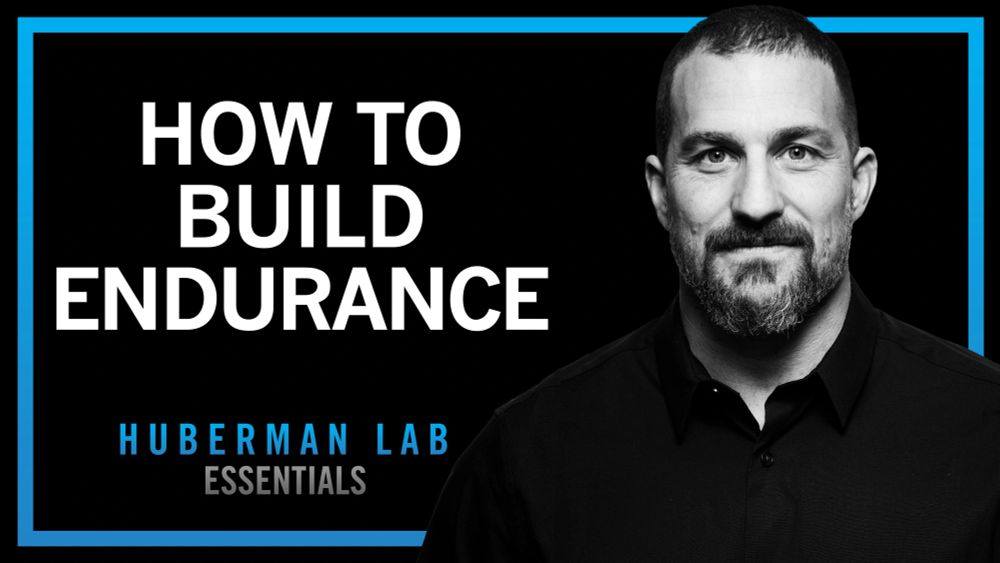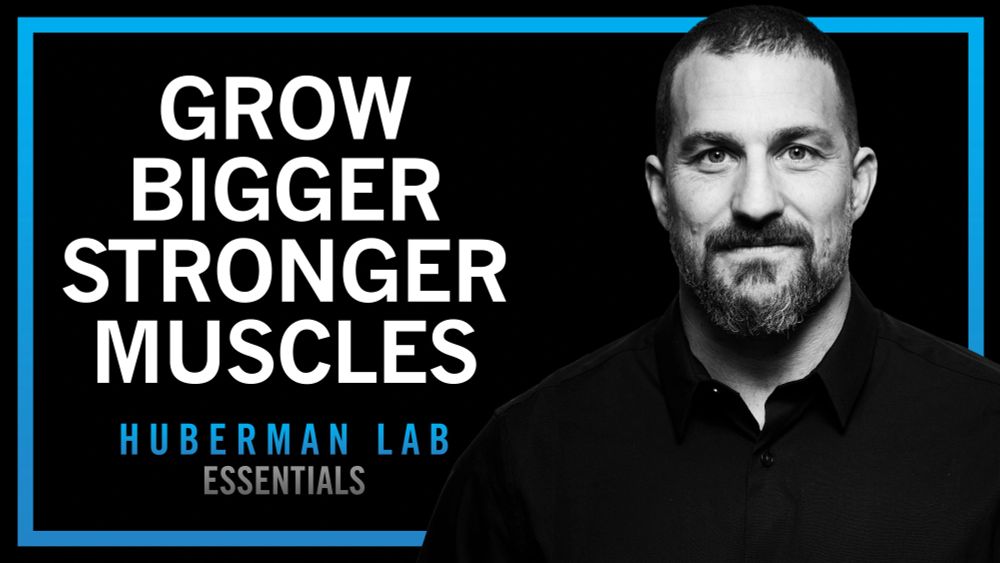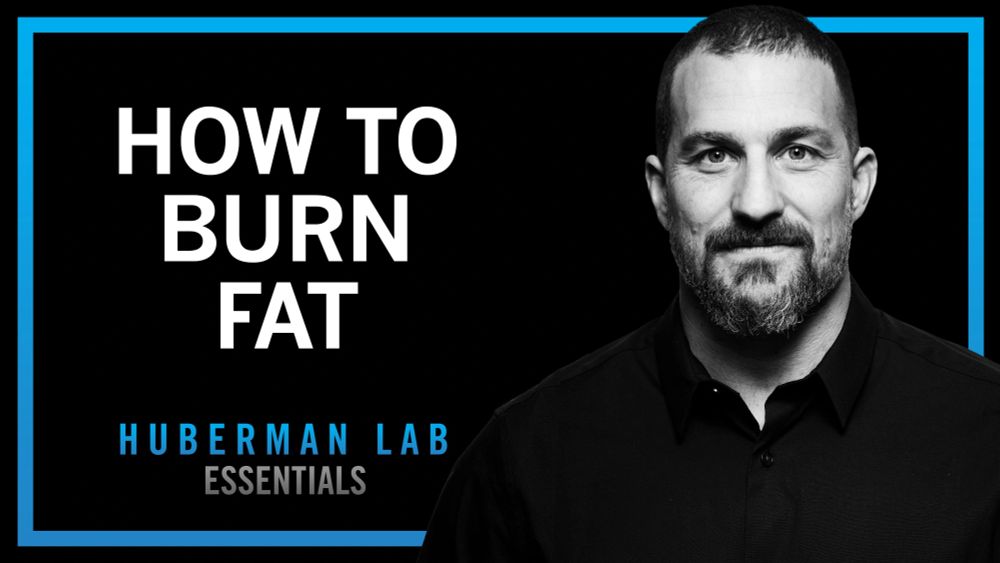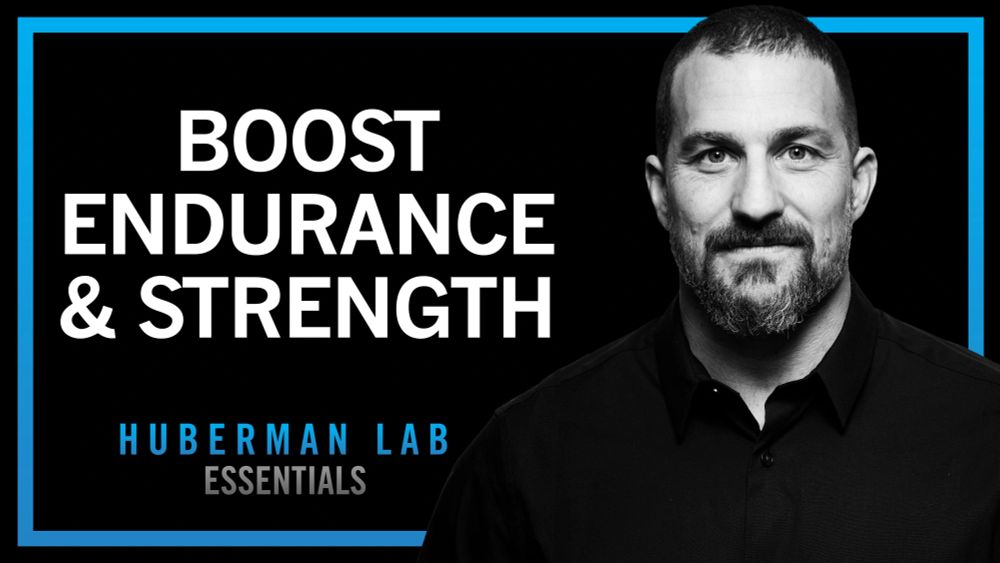I hosted Dr. Jay Bhattacharya, the new director of the National Institutes of Health (NIH) on the Huberman Lab podcast and we recorded for nearly five hours. No topic was left unturned! You can expect it to be out in about two weeks.
29.05.2025 21:35 — 👍 18 🔁 0 💬 8 📌 1
Long, deliberate exhales slow your heart rate via a specific circuit from a known brainstem nucleus through your vagus nerve. We can thank the amazing Jack Feldman from UCLA for much of our understanding of the brain circuits that control breathing and heart rate.
16.04.2025 14:12 — 👍 6 🔁 0 💬 1 📌 0
If you wake up in the middle of the night and you’re more alert than you want to be because you want to fall back asleep, try some long exhales through your mouth. This slows your heart rate. It’s a hardwired circuit that works the first time and every time.
16.04.2025 14:12 — 👍 16 🔁 2 💬 3 📌 3
Hard things made easy by hard work over time are the things to focus on. That process captures the healthy dynamics of dopamine circuits and displaces your time and attention from the no- or low-effort reward traps that exist everywhere. We still need rest, but the formula never fails.
14.04.2025 14:13 — 👍 23 🔁 5 💬 2 📌 0
Focus harder on builds. Pivot faster out of nonsense.
07.04.2025 14:11 — 👍 12 🔁 3 💬 0 📌 0
Note: Yes, light plays a role in color, but this effect is about more than just color. It involves how neighboring receptive fields influence one another, as well as adaptation phenomena in neurons. Visual illusions have taught us a lot about how the neural retina and visual system work.
06.04.2025 18:40 — 👍 5 🔁 2 💬 0 📌 0
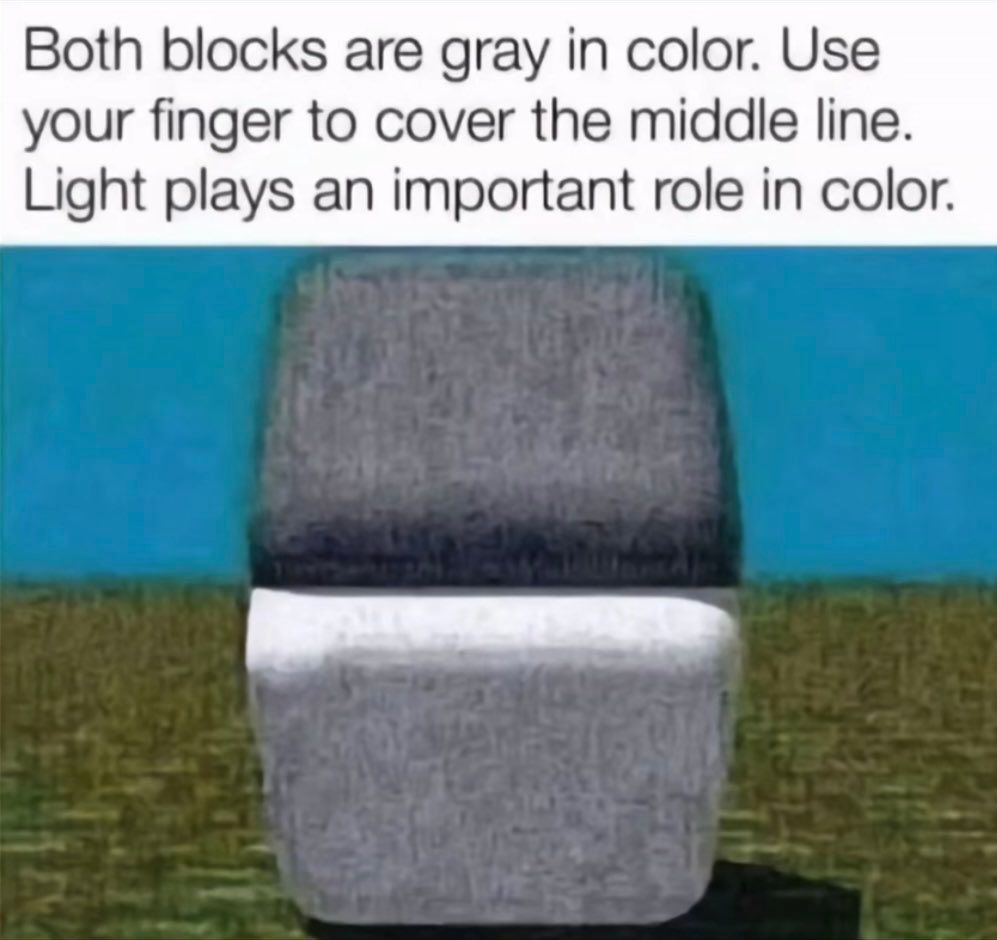
Your perception and reality are not always aligned.
06.04.2025 18:40 — 👍 29 🔁 4 💬 4 📌 1
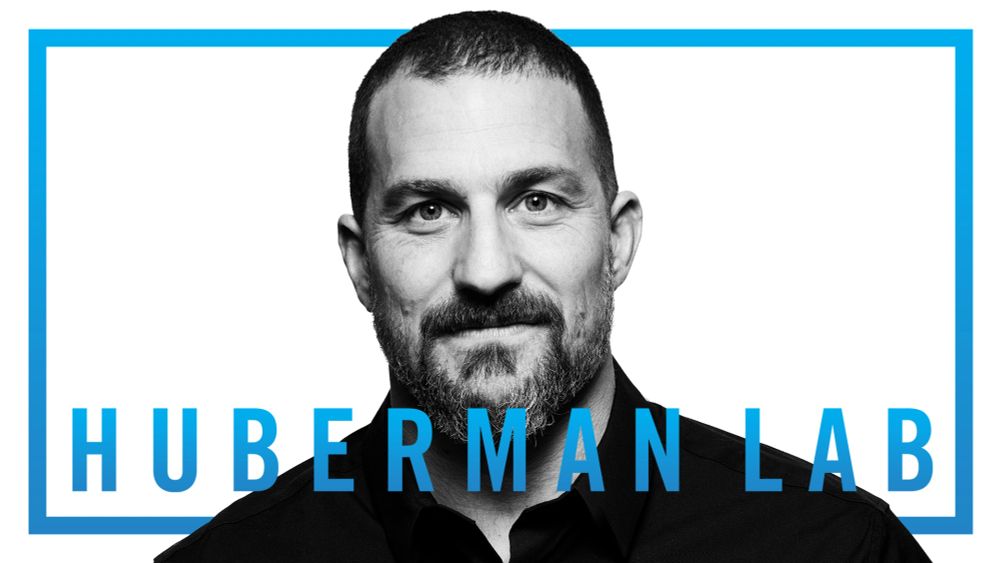
Neural Network Newsletter
Subscribe to the Neural Network newsletter for the latest updates on neuroscience, health, and science-related tools from Dr. Andrew Huberman.
We’ve created a series of zero-cost, no-sign-up newsletters that summarize these protocols. You can sign up for more if you want, but you don’t need to. All are available here: hubermanlab.com/newsletter. Enjoy!
02.04.2025 14:11 — 👍 6 🔁 0 💬 0 📌 0
The best health protocols allow you to lean into life harder and longer. Yes, there is some discipline involved, but it’s always about having more energy, focus and vitality for the meaningful work and relationships in your life—and deeper, more gratifying bouts of relaxation.
02.04.2025 14:11 — 👍 10 🔁 1 💬 2 📌 0
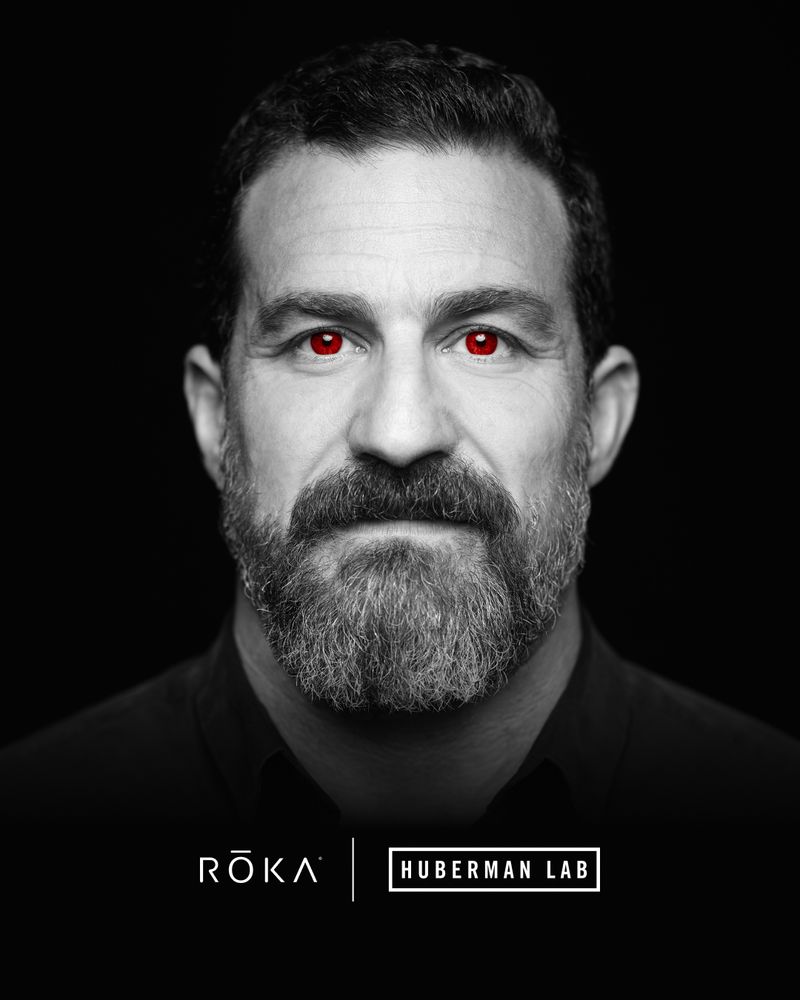
You asked, and we heard: Announcing short-wavelength light-blocking contact lenses from ROKA: roka.com/pages/windd...
PMID: 412025
02.04.2025 03:59 — 👍 5 🔁 0 💬 3 📌 0
All mental and physical ailments are substantially relieved by a regular circadian rhythm. Bright mornings and days with a lot of movement, focused work and learning, and hydration. Mellow nights and a dark room while sleeping. Repeat. If you’re up late, make it fun.
01.04.2025 14:16 — 👍 19 🔁 1 💬 0 📌 1
Many of my academic colleagues (MDs and/or PhDs) have become substantially healthier in recent years through lifestyle changes. Many are beginning to apply metabolic health hypotheses in their work and are discussing diseases differently now. Exciting!
31.03.2025 21:44 — 👍 20 🔁 0 💬 1 📌 0
Do things that energize you, and avoid things and people that activate you. You’ll get more done and have more genuine leisure time than you ever imagined.
31.03.2025 20:30 — 👍 23 🔁 2 💬 1 📌 0
Just remember: That friction is the gateway to self-directed plasticity. It reduces the number of trials required to learn. No friction, no learning—unless it’s something that naturally excites and focuses you.
30.03.2025 18:52 — 👍 4 🔁 0 💬 2 📌 0
The ideal scenario is one in which the thing you want to learn evokes catecholamine release. That requires natural excitement, focus, and a resulting state shift. Most adult learning is not like that. Most involves self-directed focus—a “friction” of sorts.
30.03.2025 18:52 — 👍 5 🔁 0 💬 1 📌 0
The catecholamines—dopamine, epinephrine, and norepinephrine—are major “state-shifting” neuromodulators that underlie the “state/change + experience = plasticity” effect. There are behavioral and pharmacologic ways to alter their levels. Many of the prescription and illicit methods are addictive.
30.03.2025 18:52 — 👍 0 🔁 0 💬 1 📌 0
While it depends on the pathway, a major determinant of plasticity rate is the degree of brain and bodily state shift that occurs.
30.03.2025 18:52 — 👍 1 🔁 0 💬 1 📌 0
People used to say "it takes 28 days to form a new habit." The reality is that neural circuits can rewire in one trial (e.g., psychological trauma) or 10,000 trials/reps.
30.03.2025 18:52 — 👍 15 🔁 2 💬 2 📌 0
I didn’t say it’s more important than exercise. But if you’re talking about regulating your sleep-wake cycles, it’s more important than exercise—though still, exercise! And like I said, you can multitask it.
26.03.2025 14:14 — 👍 4 🔁 0 💬 0 📌 0
No sunglasses, and not through a window—it filters out too much of what you want. Eyeglasses and contacts are fine. UV index is low when the sun is low in the sky. Blink as needed—never force yourself to stare at the sun. If you wake before sunrise, you have to wait for it.
26.03.2025 14:14 — 👍 3 🔁 0 💬 1 📌 0
Morning and evening sunlight viewing is the best “improve daytime wakefulness and nighttime sleep” habit for the time spent (about 5–20 minutes, and you can do other things during it). Overcast? Still sunlight. Make it nonnegotiable. (Brought to you by Big Sun.)
26.03.2025 14:14 — 👍 13 🔁 1 💬 1 📌 1
The primary mechanism by which morning exercise offsets partial (one to two hours) sleep deprivation is by reducing systemic inflammation—but only if the exercise is “moderate” (alas, that’s subjective). Takeaway: If you get fewer than ideal hours, exercise anyway, but don’t go all out.
25.03.2025 21:48 — 👍 11 🔁 0 💬 0 📌 0
It takes some work to recognize the fork in the road this represents, but we get numerous chances to do this all the time. It’s a practice to pivot into agency. Pretty soon, it becomes reflexive.
25.03.2025 14:18 — 👍 5 🔁 0 💬 0 📌 0
The most dangerous thought in life is “if only.” Nothing that follows those words comes true. Embrace reality. Think. Pick a course of action and execute. The amount of time and energy people waste wishing things and others were different instead of leaning into their agency is sad.
25.03.2025 14:18 — 👍 23 🔁 2 💬 1 📌 0
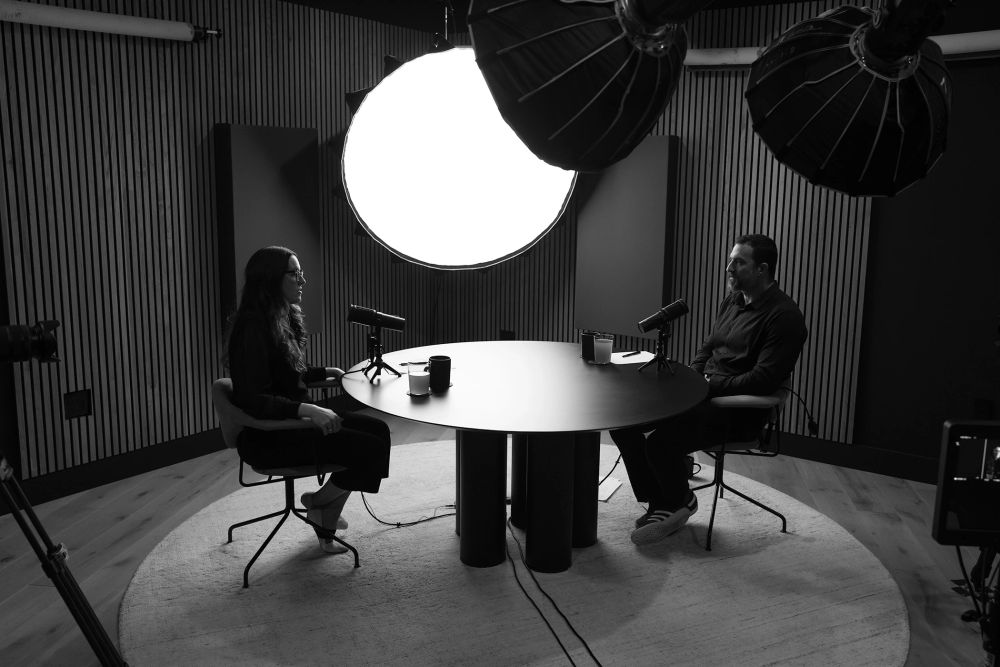
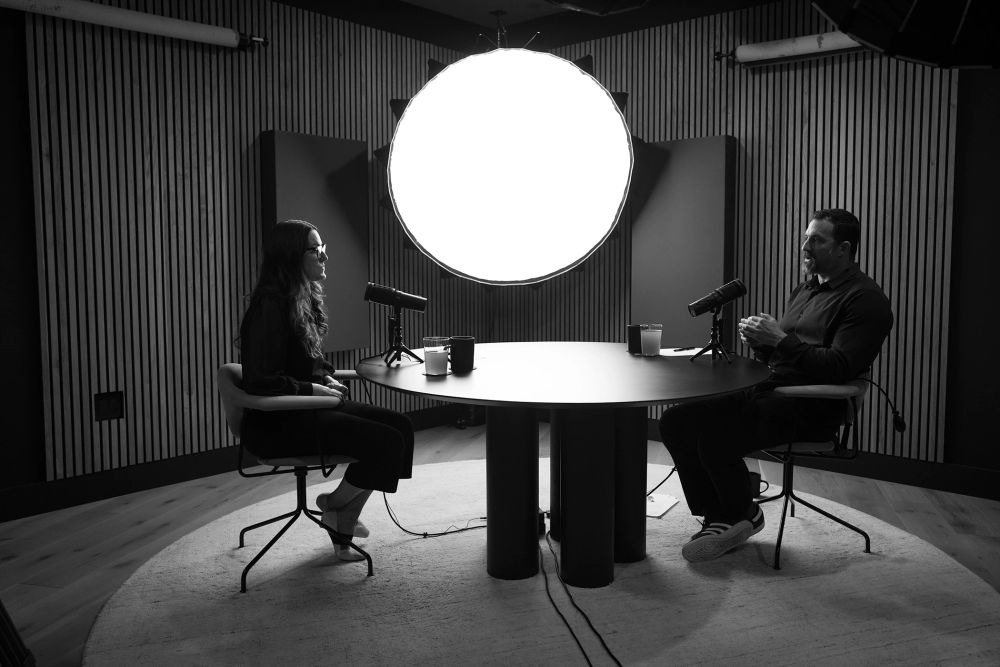
Tomorrow’s Huberman Lab episode is all about oral health.
My guest is Staci Whitman, DMD, a functional dentist who shares how oral care ingredients, diet, and breathing habits impact everything from cavities to cardiovascular and brain health.
23.03.2025 20:28 — 👍 15 🔁 2 💬 1 📌 1
